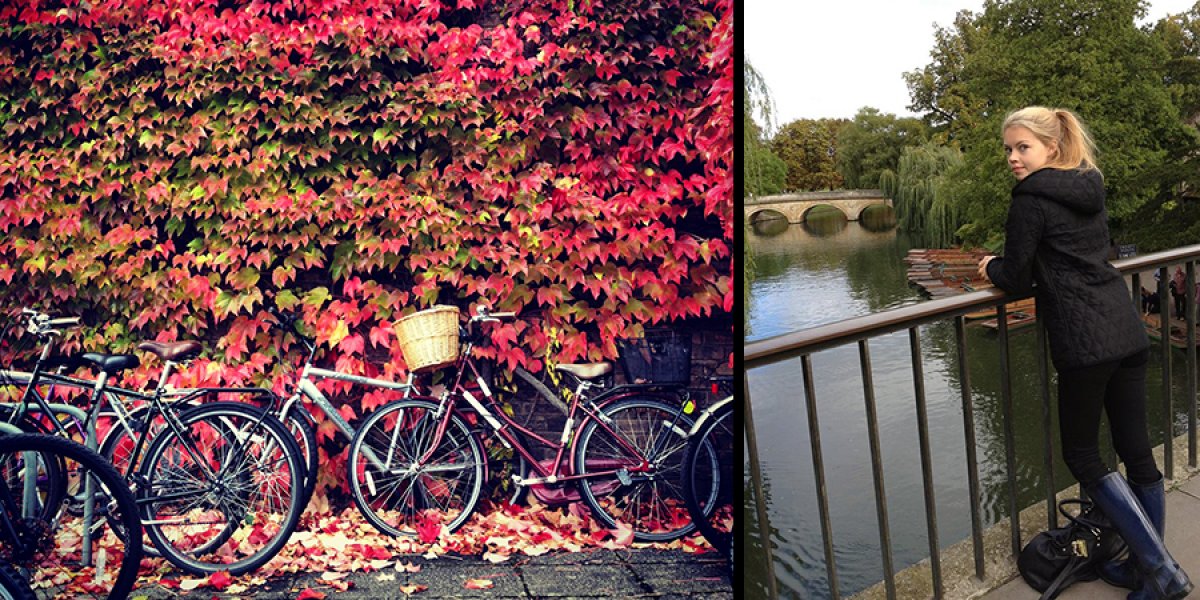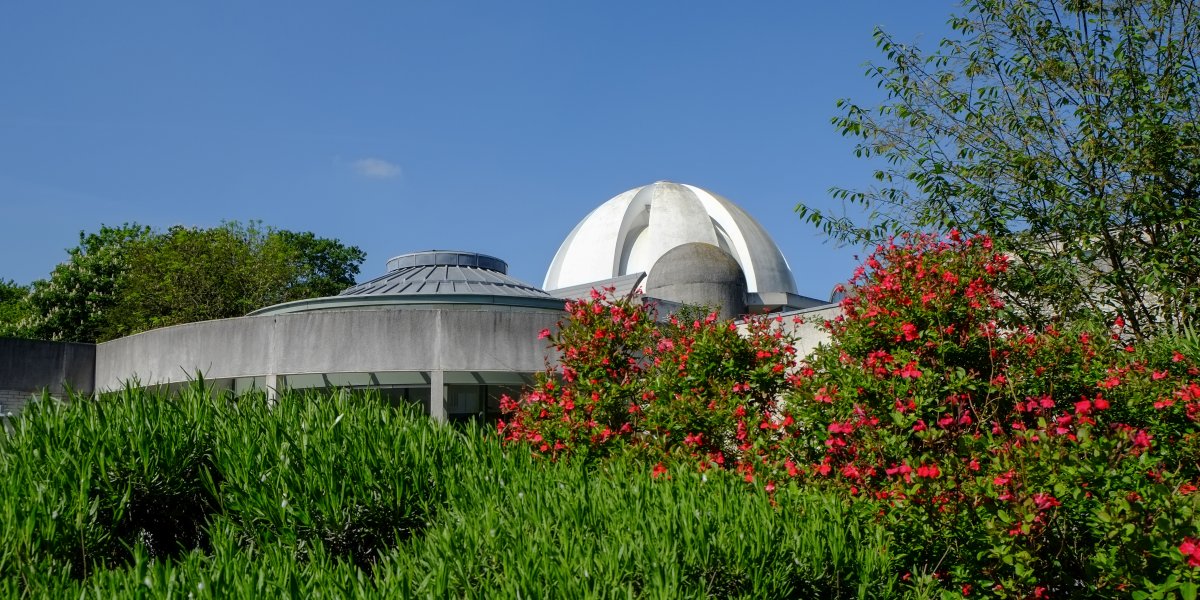Autumn bikes image by Sir Cam.
Taking part and giving back - Eloise Skinner
Eloise Skinner (Murray Edwards 2010) describes her journey from growing up in a council estate in London’s East End to working for a leading law firm. Today she’s helping other young people from disadvantaged backgrounds to fulfil their potential.
The atmosphere at Cambridge was like nothing I’d ever experienced before: everyone seemed to share a common desire to debate, discuss and learn new things.
Born on the nineteenth floor of a council estate in London’s East End, it’s safe to say that a world of gowns and formal dinners was never something that had crossed my mind growing up. At the time, my family were musicians, and life was full of piano practice, choirs and orchestras. The idea of studying at Cambridge (or any university, for that matter) just wasn’t a goal. Even as I began to develop a passion for reading and writing, an application to the University of Cambridge just seemed so far-fetched.
Coming into sixth-form, however, I felt I had little to lose with an application – I thought the process in itself would only be a good learning experience. I distinctly remember warning myself, as I arrived at interview, not to get too hopeful about the application, even when I felt, with surprise, that my interviews had gone fairly well.
The phone call came a few weeks later – I was being offered a place at Murray Edwards to study my chosen subject, Law. The whole experience felt so unreal at that point: it wasn’t until I arrived at Cambridge for my first term that it became clear that it was actually happening.
Undergraduate life
As for any undergraduate, the first year passed in a blur of textbooks, lectures and nights out. The atmosphere at Cambridge was like nothing I’d ever experienced before: everyone seemed to share a common desire to debate, discuss and learn new things. There was so much on offer – a society for every interest, from the traditional to the bizarre. The whole thing could seem a little overwhelming at times, packed into short eight-week terms. I ended up, like most people, trying a little bit of everything at the start, and then forming priorities and preferences towards the end.
The main motivation for me, however, was always the subject itself. I loved the course I was studying, and the chance to be taught by the leading academics in the field was something I never took for granted. The experience equipped me with an attitude towards learning that hasn’t left me, even though I’ve left Cambridge. The intellectual curiosity and passion for academic debate that is commonplace at Cambridge has shaped my opinions on education and learning for life.
Getting involved
Having left Cambridge, I’ve continued to work alongside organisations who motivate and encourage young people from disadvantaged backgrounds to achieve their goals.
The opportunity to study at Cambridge also gave me a strong sense of gratitude, along with a desire to help others who wanted to share in the same opportunities. I was involved in mentoring and tutoring projects from the beginning of my time at Murray Edwards and worked alongside the Cambridge outreach team during application and interview periods. Some of the best moments during my time at university were spent with potential applicants who turned up a little lost and intimidated, but full of ambition. The determination, drive and excitement of new students is genuinely inspiring – it’s a constant reminder of the incredible experience that Cambridge offers.
Next steps
As I neared graduation day, I started to consider what to do next. A year out seemed like the most obvious option: I knew I’d eventually train to be a solicitor, but wanted to take some time developing the interests that I’d touched on at university. With my family now living fairly near to Cambridge, I was able to spend a great deal of my post-university year in the city itself, working for local charities, exploring the area and getting involved in the Cambridge Union – something I had always wanted to do whilst studying, but never had the time to fully engage in.
Then, finally, it was off to London to start work. Leaving Cambridge behind seemed like a big step – it had been a significant part of my life, and one from which I was reluctant to move on. However, the strong links that Cambridge retains with its alumni made the transition easier.
Many of my interests have changed and developed throughout my post-Cambridge years, but one thing that has never left me is a passion for learning – the instinct to always ask why, and find out more. Again, this is something I have never taken for granted, and it’s something I’m certain I will never lose.
Giving back
Although the University of Cambridge is by no means alone in its ongoing outreach initiatives, it introduced me to a world of projects, partnerships and programmes which aim to enhance aspirations for students around the country. Having left Cambridge, I’ve continued to work alongside organisations who motivate and encourage young people from disadvantaged backgrounds to achieve their goals, and I continue to find the young people that I work with to be genuinely inspirational.
The offices of the law firm at which I currently work are only a few tube stops from the council estate where I was born – but my university experiences have given me a different perspective on earlier understandings of life. And for those still studying at Cambridge, or for those who have since graduated and have time or resources to spare, I’d wholeheartedly recommend getting involved in outreach projects such as Cambridge University – Widening Participation and the Young Women’s Trust as a great way to share the advantages of your own experience.
Eloise has a BA (Hons) in Law and attended Murray Edwards College throughout.
If you would like to submit your own alumni story, send us an email for details of our submission guidelines.
This article has been written by Eloise Skinner and the opinions expressed are those of the author.

